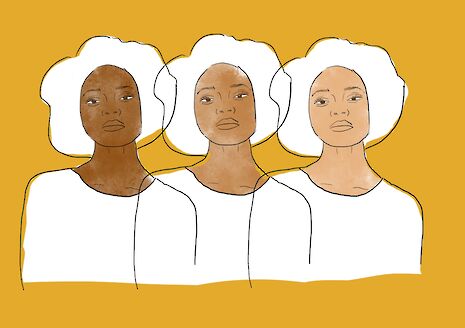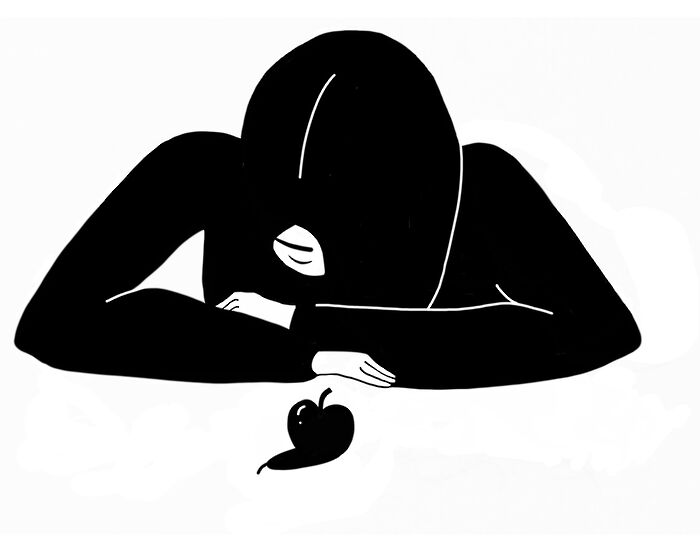‘The fairest of them all’: experiencing colourism as a dark-skinned woman
Cynthia Fernando discusses her experiences of colourism as a dark-skinned woman in British and Indian culture, arguing that we urgently need to talk about colourism.

As a dark-skinned woman of colour, involving myself in race-related activism has never felt like something I could opt out of. I am so obviously removed from Western beauty standards that it’s often the first thing people will notice, and therefore, something inherently definitive. So when I meet otherwise well-meaning people who tell me I should not let my skin colour define who I am, or claim to be ‘colour-blind’, or that maybe I ‘shouldn’t get so worked up about race’, I cannot help but laugh. How can I divorce myself from the colour of my skin when the way I navigate the world is fundamentally different because of it? Yes, it is exhausting to constantly have to think about my place in this world in terms of my skin colour. But it’s not as if I’ve ever been given a choice in the matter.
As a child attempting to reconcile my Indian and British identities, I could not enjoy everyday life without constant reminders of the darkness of my skin. My family watching Indian television from the sofa of our British home, primarily to stay connected to the culture we had left behind, only served to make me want to distance myself even more, further than simple geography would allow. Adverts for skin-lightening creams would ambush me during the ad-breaks of my favourite soaps with promises to make me more self-confident. In movies, jokes about girls looking as if they had been ‘burned in frying pans’ passed as comedy and entire song and dance numbers were dedicated to praising fairness. Marriage advertisements that explicitly excluded applications from dark-skinned women were not uncommon.
Outside of Indian circles, my darkness was apparent there too. I have heard ‘you look pretty for a dark-skinned girl’ played off as a compliment, and been warned by complete strangers to not spend too much time in the sun, in case I tanned. It always struck me when there was no malicious intent in their voices, but instead a genuine belief that they were complimenting me or looking out for me, protecting from the implications of having dark skin. These statements demonstrate just how ingrained beauty standards of fairness have become - it is accepted as normal, even desired, to strive for as light a skin as you can achieve.
For a long time, I felt like an island, bodies of water separating me from any one mainland or nationality to call my own.
Colourism is the prejudicial and preferential treatment of people based solely on skin colour. Though not unrelated, it is distinct from racism as it can come from members of the same race as well as from external sources. This preferential treatment of lighter skin tones had a detrimental effect on my perception of beauty and self-worth. But it goes beyond words and hurt feelings - it raises fundamental questions about belonging. For a long time, I felt like an island, bodies of water separating me from any one mainland or nationality to call my own. Not only did I feel out of place in British society as a woman of colour, I also felt removed from my own ethnic group - all because of something I could not change.
Despite this, I was incredibly lucky in my upbringing. Growing up in North London, I grew up in a diverse environment, surrounded by people of all skin tones. While memories of wanting to lighten my skin are painful ones, I was incredibly lucky to have a family that forbade it and taught me the inutility of valuing physical looks. I was encouraged to pursue any career and further my education, a luxury dark-skinned people of colour are not afforded, being suppressed and silenced for the sake of their fairer counterparts in India. Having dark skin was associated with the lower-caste occupations of manual labour, and hence dark-skinned people are much less likely to be aided in aspiring to anything else.
It is because of this that colourism’s relevance to me now is less about me as an individual and more about an acute awareness of its systematic nature. A simple browse through make-up aisles at Boots to search for a foundation to match my skin tone is enough to remind me of that reality. With the colour palette of a myriad of light skin tones to choose from and one dark foundation labelled ‘mocha’, the makeup industry paints itself as fundamentally colourist. Many bath products contain some kind of skin-whitening or bleaching product.
Talking about it is my way of retaking control of it, in the hopes of changing that narrative.
Social media reveals colourist attitudes. When my friends are whitewashed under layers of Instagram filters, or someone praises Snapchat for contouring your features to make them look more distinctly Western, it becomes evident that most people still view the imposition of fairness as an improvement – not through their own fault, but through the fault of a society that has forced that narrative. It is not as explicit as the adverts I recall from my childhood, but its appearance in subtle ways highlights just how institutionally cemented those beauty standards are.
Why does colourism often take a backseat to discussions about discrimination? In the past, I have been hesitant to speak up about it. When movements such as Black Lives Matter call for a united front, to call out members of your own race for discriminating based on skin colour seems counterproductive and divisive. When the stakes are so high, a sense of guilt comes with criticising other people of colour. Dark-skinned people of colour also refrain from speaking out against colourist injustice for fear of conforming to stereotypes of anger and violence.
However, refusing to confront the issue ironically serves to deepen divisions. It is colourism itself that has divided our communities, by alienating certain members, and that denying that the problem exists just masks it rather than solves it. It is because of my upbringing that I feel fortunate enough to be able to talk about my experiences without significant repercussion. So I do bring it up and start conversations about it – skin colour has always been what other people have used to define me. Talking about it is my way of retaking control of it, in the hopes of changing that narrative.
Unlearning the beauty standards crammed down my throat has been a process, one that I may go through for the rest of my life. While I occasionally wish for lighter skin, for the most part I love dark skin and enjoy the benefits of it (sunburns sound horrible, but I’ll never know). Surrounding myself with and deriving inspiration from dark-skinned people of colour, I have gained confidence in my own skin, confidence enough to speak frankly and unapologetically about my experiences.
And nothing out of a bottle of ‘Fair and Lovely’ could have given me that.
 News / Uni Scout and Guide Club affirms trans inclusion 12 December 2025
News / Uni Scout and Guide Club affirms trans inclusion 12 December 2025 News / Pembroke to convert listed office building into accom9 December 2025
News / Pembroke to convert listed office building into accom9 December 2025 Features / Searching for community in queer Cambridge10 December 2025
Features / Searching for community in queer Cambridge10 December 2025 News / Uni redundancy consultation ‘falls short of legal duties’, unions say6 December 2025
News / Uni redundancy consultation ‘falls short of legal duties’, unions say6 December 2025 News / Cambridge Vet School gets lifeline year to stay accredited28 November 2025
News / Cambridge Vet School gets lifeline year to stay accredited28 November 2025









